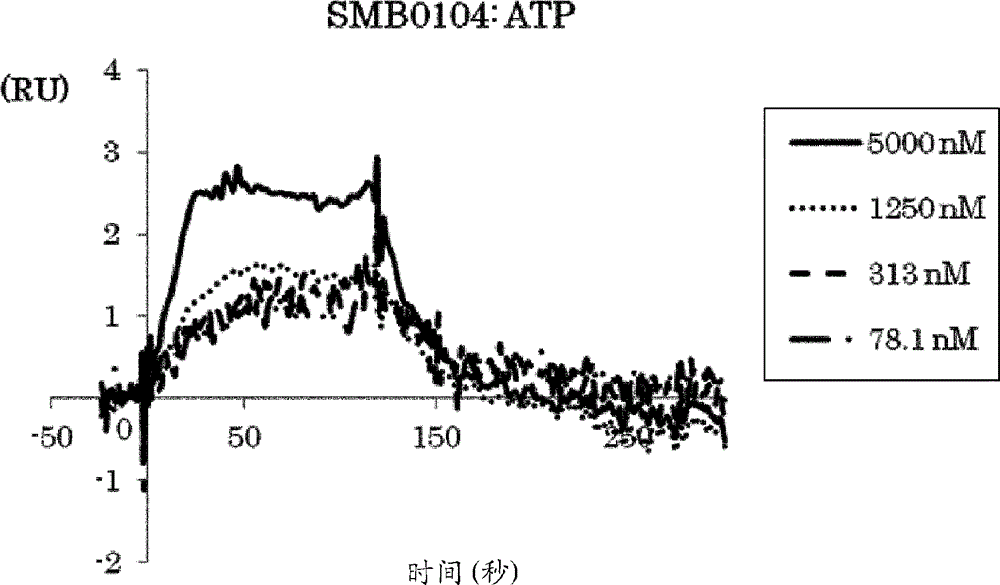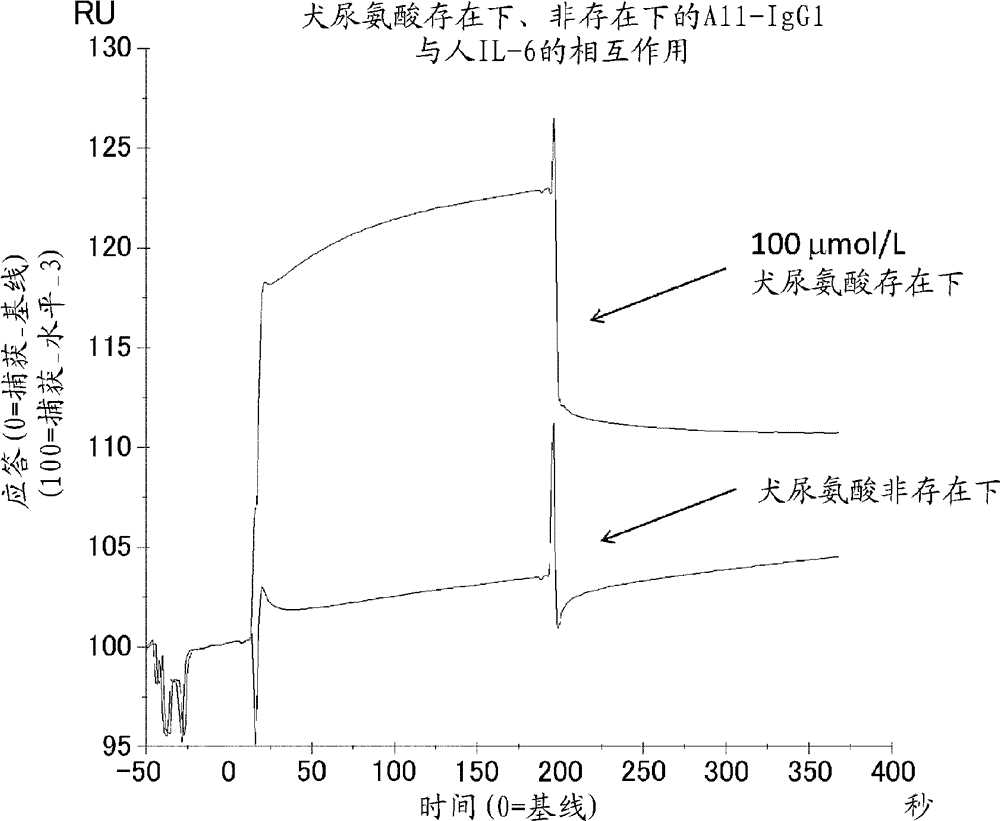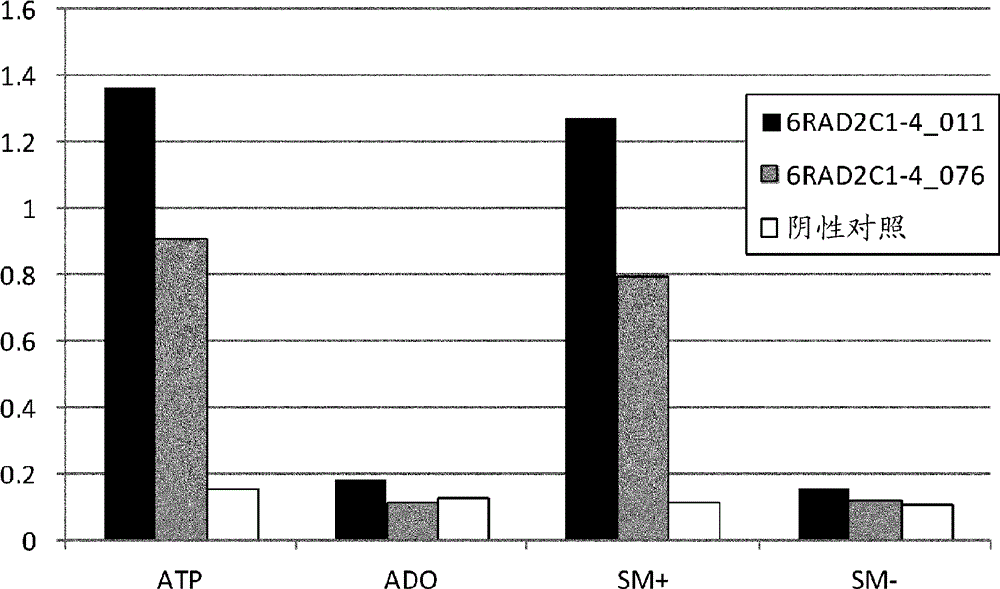Target-tissue-specific antigen-binding molecule
An antigen-binding molecule and specificity technology, applied in drug combination, anti-receptor/cell surface antigen/cell surface determinant immunoglobulin, antibody, etc., can solve problems such as the specificity of protease cancer
- Summary
- Abstract
- Description
- Claims
- Application Information
AI Technical Summary
Problems solved by technology
Method used
Image
Examples
preparation example Construction
[0523] (1) Preparation of effector cells
[0524] Spleen cells were isolated in RPMI1640 medium (Invitrogen) from spleens extracted from CBA / N mice and the like. The concentration of the spleen cells washed with the same medium containing 10% fetal bovine serum (FBS, HyClone) was adjusted to 5×10 6 / mL, from which effector cells can be prepared.
[0525] (2) Preparation of complement solution
[0526] A complement solution was prepared by diluting Baby Rabbit Complement (CEDARLANE) 10-fold with a medium containing 10% FBS (Invitrogen).
[0527] (3) Preparation of target cells
[0528] Antigen-expressing cells were treated with 0.2 mCi of 51 The target cells were radiolabeled by incubating with Cr-sodium chromate (GE Healthcare Bio-Sciences) in DMEM medium containing 10% FBS at 37°C for 1 hour. After radiolabeling, wash 3 times with RPMI1640 medium containing 10% FBS, and adjust the concentration of cells to 2×10 5 / mL, thus the target cells can be obtained.
[0529] ADC...
Embodiment
[1734] [Example 1] The concept of an antibody that binds to an antigen by using a low molecule present in a high concentration in the target tissue as a switch
[1735] In order to exhibit drug efficacy while avoiding side effects, it is necessary to develop a drug that does not act systemically in normal tissues or blood, but acts on cancerous or inflammatory sites as diseased sites. Antibody molecules that can bind to antigens expressed on cancer cells but not to antigens expressed in normal tissues after administration can exert potent anti-cancer cells while avoiding side effects caused by cytotoxic effects on normal tissues Toxic effects. For example, the antigen-binding molecule obtained by changing the aforementioned EGFR-BiTE (Non-Patent Document 9) is a molecule that does not bind to EGFR expressed in normal tissues but can bind to EGFR expressed on cancer cells, which can avoid side effects Play a strong anti-tumor effect. In addition, BiTE recruits and activates T...
Embodiment 2
[1740] [Example 2] Obtaining an antibody that binds to human IL-6 in the presence of low molecular weight from a human antibody library using phage display technology
[1741] (2-1) Preparation of natural human antibody phage display library
[1742] Using poly A RNA prepared from human PBMC or commercially available human poly A RNA as a template, human antibodies consisting of a plurality of phages displaying Fab domains of human antibody sequences different from each other can be constructed according to methods known to those skilled in the art Phage display library.
[1743] (2-2) Obtained from the library by bead panning in the presence of low molecular weight and human IL - 6 Conjugated Antibodies
[1744] From the natural human antibody phage display library constructed in (2-1), screening was performed for antibodies exhibiting antigen-binding activity in the presence of low molecules. That is, phages displaying antibodies exhibiting binding activity to antige...
PUM
 Login to View More
Login to View More Abstract
Description
Claims
Application Information
 Login to View More
Login to View More - R&D Engineer
- R&D Manager
- IP Professional
- Industry Leading Data Capabilities
- Powerful AI technology
- Patent DNA Extraction
Browse by: Latest US Patents, China's latest patents, Technical Efficacy Thesaurus, Application Domain, Technology Topic, Popular Technical Reports.
© 2024 PatSnap. All rights reserved.Legal|Privacy policy|Modern Slavery Act Transparency Statement|Sitemap|About US| Contact US: help@patsnap.com










